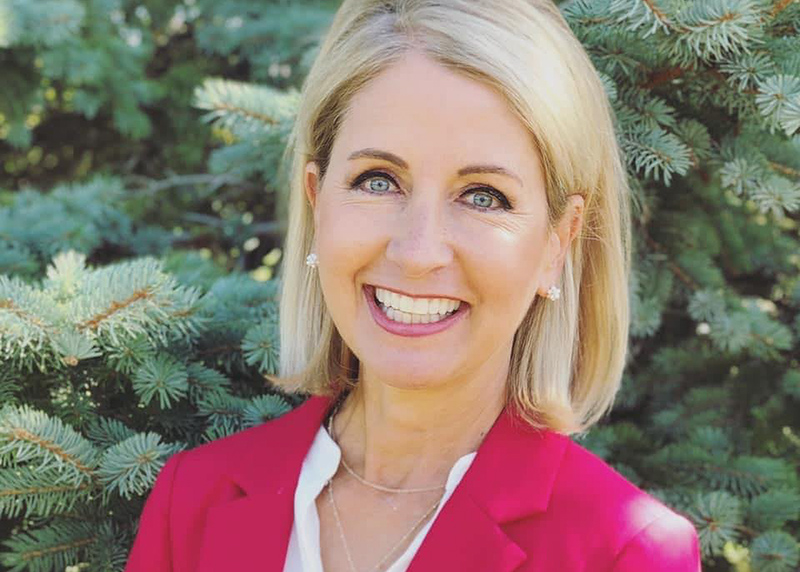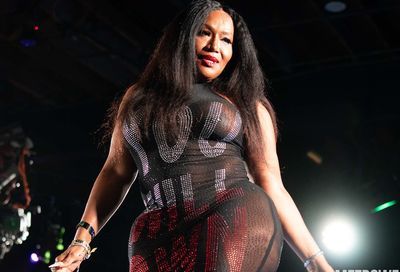The Ambassador of Out
James Hormel's memoir is, at its base, a coming out story
MW: This next election, though, is going to be the first election cycle where LGBT people are choosing to go on the offense, in Maine, for example, to seek marriage equality – and possibly elsewhere. That’s something we’ve never done before. How does that change the way donors and others need to be looking at elections?
HORMEL: That’s interesting. What’s happening is state by state, which is also very interesting. We’re not talking federal regulations and that sort of thing. This is what’s happening in Maine. This is what’s happening in Iowa. This is what’s happening in North Carolina or wherever it is. And, in those individual states there are individual sub-issues that are guiding the electorate. And I don’t know them very well because I haven’t studied them well.
What happened in Iowa, I think, is very disturbing to me – when three members of the Iowa Supreme Court were recalled because they and all of their colleagues on the bench voted their conscience. Which I think is just appalling and I think a very serious threat to the independence of the judiciary in this country. And it would be my hope that someone would go to Sandra Day O’Connor and say, ”This is your time to do a little campaign around the country to point out this danger.” That’s her issue.
The fact that the balance of power in the Iowa state Legislature has been preserved for now is encouraging, but that’s going to come up again next year. And, who knows – not just what people will say, but how much money will be poured into that state in order to prevent justice from prevailing.
MW: I’ve had the opportunity to talk with both Frank Kameny, who looked constantly to how far LGBT equality efforts have advanced, and Larry Kramer, who looked at how much was left to be accomplished. When you look at what has changed and what remains, how do you reconcile those two?
HORMEL: I’m not quite sure how to look at that because when I look at the fact that the Equal Rights Amendment never has been approved, and when I look at what African-Americans in our country have gone through and still go through – yes, the laws are great, but they just don’t do the trick – I just don’t know.
I don’t know whether it’s conceivable, whether there’s something about the human condition that requires this sort of hierarchy of society where there’s always somebody to look down on. And, I think that if that’s the case then we really need to examine very carefully what our society is built on.
I knew Frank and I know Larry Kramer. They represent tenacity and perseverance. So, in that way they are both very much alike. Larry is an angry person. When he’s not an angry person, he’s an absolute sweetheart. But his anger is very clearly directed. He’s driven, and I really appreciate it. I really do. I admire him enormously. And I think that his message, that we have to get angry, that we have to start shouting, is a very important message. It has to be taken with an eye toward achievement, the accomplishment of a goal, because getting angry over a principle loses track of the goal.
Where am I in all of that? I guess that I am more inclined to look forward than to look backward.
MW: For the longest time, the Employment Non-Discrimination Act was ”what’s coming” – from its introduction in the early ’90s – and then, once it became clear that the hate crimes act was going to be a first step and then ENDA would follow, and then ”Don’t Ask, Don’t Tell” got the spotlight and became ”what was going to happen” and ENDA would follow, and now this year all that we’ve seen in Congress is talk about the Respect for Marriage Act and DOMA. ENDA, the entire time, has been sitting there. Where is ENDA? Where is concern for some more basic rights for people to live?
HORMEL: My perception is that federal legislators are far behind their constituents. I don’t know why, except maybe that they come to this very insular community and spend all their time talking to each other instead of talking to their constituents, so they don’t know that, whatever it is now, 81 percent of the polling population supports nondiscrimination in hiring and housing. And, I don’t know why anyone would be unwilling to pass such a piece of legislation today. It makes no sense to me. So, it languishes.
MW: There was a concern that some Democrats expressed about losing a vote on a motion to recommit related to transgender issues. And, even within the LGBT community, transgender issues continue to plague the gay community about whether the gay community has really educated itself about trans issues.
HORMEL: I’m not sure that it has. I really feel that we have a constituency that doesn’t understand gender identity or gender identity issues. The general voting public certainly doesn’t. The trans community – the trans piece of LGBT – gets short shrift. Nobody’s speaking out. I’m not faulting people on this; I’m just saying nobody knows how to make clear that this is not just an issue of sexual orientation. That it’s quite different, and that it has many different components to it.
I was a linesman at a tennis tournament in the ’70s. It was the second tournament that Renee Richards played in as a woman. And, I can assure you that Renee Richards was a woman, there is no doubt about it. Sure, she was 6’2” and all that, but Renee Richards’s identity was so clear. To me, there was just no question about it.
I don’t know, personally, how to talk about transgender issues. They are very important because we’re all very important. They are very difficult because the numbers are much smaller and the understanding of the issues involved is clouded by our notions of the way things should be. And there is not an articulate voice that expresses clearly what those issues are and how they affect people’s lives.
When I was at a conference, I think it was about six years ago in Geneva, I met a person who was the first transgender person to be elected to the Japanese Parliament. And, I thought, ”It’s fascinating to me that a country with such rigid ways as Japan could be so far ahead of us.”
So, what’s going to happen [with ENDA]? We’ve got to assume that people are will try to do tricky things with the piece of legislation. They do with every piece of legislation. They attach amendments, they rewrite, they couch language in it that seems innocent but turns out to be a deal-killer – there are all kinds of tricks that go on daily.
It’s the system. Well, the system needs to recognize that in a democracy – in a real democracy – there should be room for everyone. And we don’t have that.
MW: What do you see as your contribution to that story?
HORMEL: To a certain extent, my contribution is the same as a lot of other people’s, which is being out, which is letting people know who we are in one form or another, whichever works for us. I really think that may be the most important thing. And right now, I’m still coming out.
Fit to Serve: Reflections on a Secret Life, Private Struggle, and Public Battle to Become the First Openly Gay U.S. Ambassador, by James C. Hormel and Erin Martin, is available at Skyhorse Publishing, skyhorsepublishing.com, for $24.95.
Support Metro Weekly’s Journalism
These are challenging times for news organizations. And yet it’s crucial we stay active and provide vital resources and information to both our local readers and the world. So won’t you please take a moment and consider supporting Metro Weekly with a membership? For as little as $5 a month, you can help ensure Metro Weekly magazine and MetroWeekly.com remain free, viable resources as we provide the best, most diverse, culturally-resonant LGBTQ coverage in both the D.C. region and around the world. Memberships come with exclusive perks and discounts, your own personal digital delivery of each week’s magazine (and an archive), access to our Member's Lounge when it launches this fall, and exclusive members-only items like Metro Weekly Membership Mugs and Tote Bags! Check out all our membership levels here and please join us today!
























